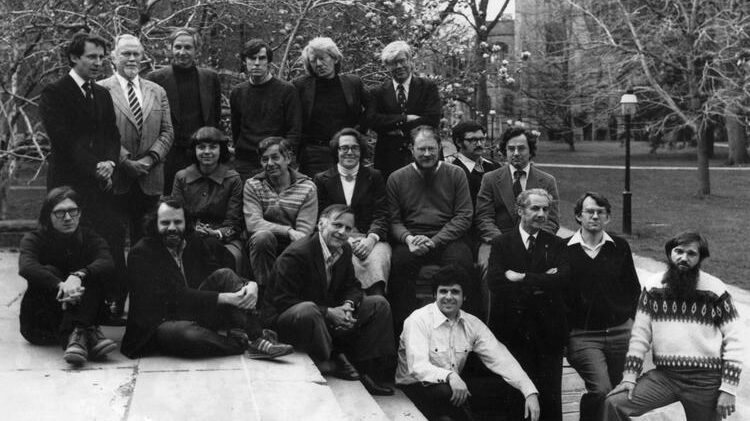Raymond Geuss has a remarkable penchant for producing pithy titles. In his collection of essays entitled A World Without Why, Geuss questions the Enlightenment ideal of the autonomous, rational individual and challenges the authoritative role claimed by moral philosophy to provide the final framework for our lives. Subsequently, in the titular essay from Who Needs a World View?, Geuss elaborates on his encounter with Deweyan pragmatism as an undergraduate at Columbia University to argue that the search for philosophical truth in the form of a coherent theoretical framework is misguided; human life is simply the process of constantly trying to figure out what ‘works’. However, he insists that the absence of such a framework does not raise the spectre of nihilism. Instead, knowledge is essentially contextual. Geuss’s latest book, Not Thinking Like a Liberal, follows this trajectory by expanding on these themes. Yet, it is also distinct from his previous work insofar as it represents the first sustained autobiographical account of his intellectual development and political views.
Throughout his career, Geuss has frequently and emphatically expressed his opposition to liberalism. Indeed, whilst he commends his late friend and former colleague Bernard Williams for sharing much of his antipathy to contemporary ethics and political philosophy, Geuss (2014) nevertheless regretted that Williams remained ‘naturally comfortable paddling about in the tepid and slimy puddle’ of liberalism. According to Geuss, Williams had no qualms about liberalism because he ‘was a man who was remarkably comfortable in his own skin and who fit in easily with the existing world of politics and academic society’. Yet, as one reviewer points out, it is unclear ‘how relatively uncomfortable Geuss’ position was before his retirement’ from Cambridge as Emeritus Professor.
Not Thinking Like a Liberal is precisely Geuss’s attempt to explain why liberalism continues to sit uncomfortably with him. His answer is that the Catholic education he received in the 1960s at a private boarding school run by Hungarian refugees in Philadelphia exposed him to a worldview which made it more difficult to accept certain basic liberal assumptions. As Geuss observes, ‘The instruction in my school took direct aim at the conception of the sovereign, self-transparent individual which was central to all forms of liberalism’. Although he did not embrace Catholicism either, Geuss is grateful that he grew up with it because this predisposed him to a set of beliefs and attitudes that are conducive ‘to resisting the allure of certain widespread illusions’ in contemporary society. Subsequent years studying philosophy at Columbia under the Left-wing influence of Robert Paul Wolff, Sidney Morgenbesser, and Robert Denoon Cumming reinforced this position, and supplied Geuss with the concepts and intellectual framework that enabled him to distance himself from the ‘total ideology of our era, the conjunction of democracy, liberalism, and capitalism’. In reflecting on the course of his long philosophical career, Geuss concluded: ‘Nothing that has happened in the fifty years since I finished my doctoral dissertation in 1971 has really had a radical effect in shaking the basic way of viewing the world’. In short, Geuss claims that he was never attracted to liberalism and fully attributes the reason for this to the formative years he experienced as a student.
Geuss’s book shares significant affinities with another recent autobiography by a political philosopher, that of Lea Ypi’s highly acclaimed memoir, Free: Coming of Age at the End of History. Both authors use personal history to show how the circumstances in which they grew up shaped their worldviews and informed their political positions. In a sense, the histories which they respectively trace are symmetrically opposite to each other. Whereas Geuss rejected liberalism because he was to an extent insulated from its hegemonic influence in the United States, Ypi reached the same position despite growing up in socialist Albania and accepting the promise of liberalism immediately following the collapse of communism. In the case of Ypi, she eventually ‘equated liberalism with broken promises’ once she realised that liberalism, like socialism, fell short of the ideal of freedom it purportedly represents. For Geuss, however, that liberal ideal has always remained a fantasy.
In characteristic fashion, Geuss does not offer an alternative to liberalism. This is continuous with his long-held belief that criticism need not be constructive for it to be politically valuable. Nevertheless, he insists that any such alternative would not necessarily be authoritarian. In contrast to Francis Fukuyama, whose recent defence of liberalism is motivated by the assumption that even the shortcomings of a liberal regime ‘remain superior to the illiberal alternatives’, Geuss encourages us to abandon the false dichotomy between liberalism and authoritarianism. According to Geuss, the path he took demonstrates that it is possible to depart from liberalism without being authoritarian: in fact, for the pragmatist, it is feasible to dispense with the concept of normative authority altogether. Geuss does not offer extended arguments for this position due to his belief that philosophical understanding is achieved not via argumentation but through a Foucauldian demonstration of what is possible, as opposed to necessary, for us to think. In this respect, Geuss contends that a work of history or ethnography rather than a formal philosophical treatise better serves the goal of philosophy in cultivating intellectual flexibility.
If there is one lesson that Geuss hopes to impart through his honest and sincere effort of self-contextualisation, it is encapsulated in ‘the late-ancient idea that tuchē—contingency—rules all’. By emphasising his conviction that one’s initial embrace of a particular worldview is always situated in a particular place and time, Geuss hopes to persuade liberals that it is possible to begin from elsewhere, his case in point. Whether or not his case is convincing ultimately depends on if it ‘works’ for us, in our own specific historical context.

